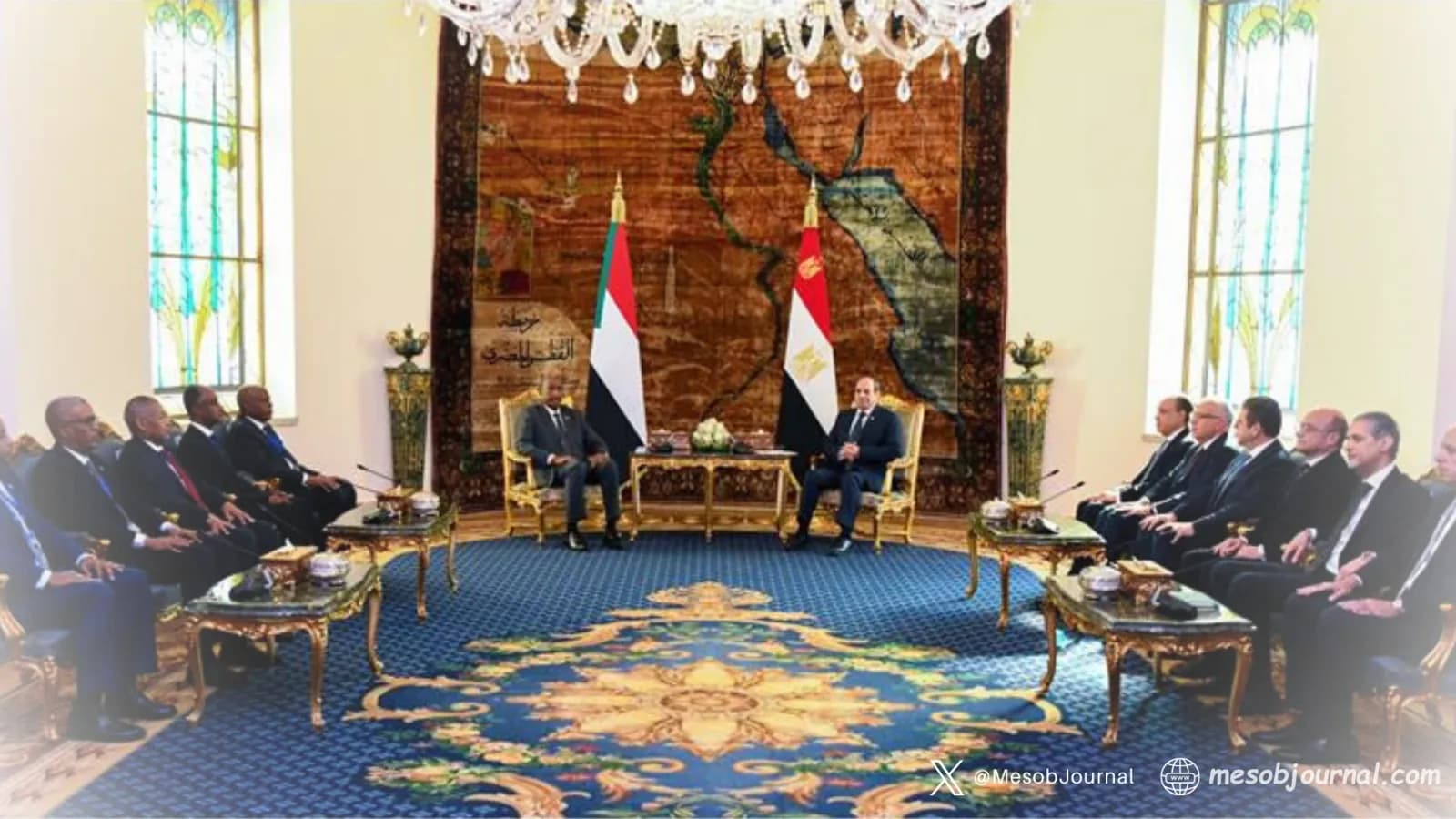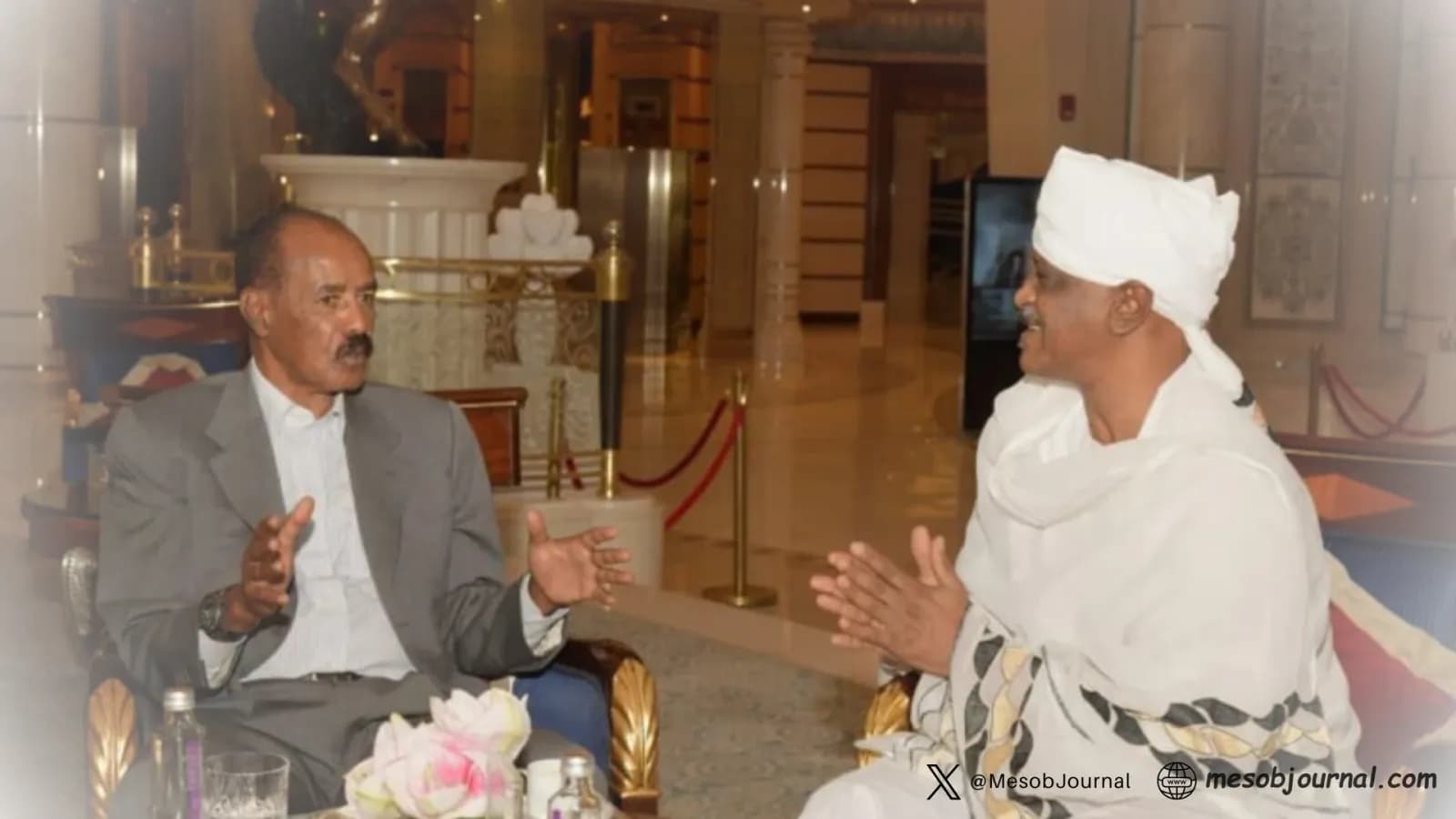Sudan PM Kamil Idris: Eritrea’s Support Is Action, Not Words

When Sudan’s new Prime Minister, Dr. Kamil Idris, landed in Asmara this week, it was more than just a diplomatic courtesy call. It was a homecoming of sorts — a return to a neighbor that never turned its back on Sudan even when the world did.
Over two long days, the Sudanese leader and his high-level delegation held more than seven hours of intense, open discussions with President Isaias Afwerki and senior Eritrean officials. The result: a reset in Sudan-Eritrea relations that promises not just coordination but a common front — one rooted in shared struggle, mutual respect, and the determination to resist foreign meddling in African affairs.
A Visit Framed by Gratitude and Principle
“The relations between Sudan and Eritrea are historical and profound,” Dr. Idris began in his Eri-TV interview. “We came to Asmara at this time to extend our thanks, appreciation, and gratitude to the State of Eritrea — its President, government, and people — for the honorable positions Eritrea has taken in standing with Sudan and its people during these exceptional circumstances.”
It wasn’t just polite diplomacy. The Prime Minister’s words reflected what many Sudanese quietly acknowledge: that in the hardest year of their nation’s modern history, Eritrea was there — offering refuge, mediation, and a principled voice when others hesitated.
During his televised remarks, Dr. Idris confirmed that the two sides agreed to upgrade their long-standing Political Committee into a Comprehensive Economic Committee tasked with steering “major strategic and vital projects” — not small gestures, but big, tangible ventures such as Red Sea fisheries, gold and oil refineries, and shared mineral investment.
Eritrea’s Distinct Role: Principles, Not Expediency
Asked about Asmara’s role in resolving Sudan’s war, Dr. Idris was unequivocal: “Eritrea is an important country in the Horn of Africa and the Red Sea region, occupying a crucial strategic location. With the charisma and insightful vision that President Isaias Afwerki possesses, Eritrea has an important role to play.”
He went further, describing Eritrea’s stance as rooted in justice, not opportunism. “Eritrea has stood firmly for what is right and has supported Sudan wholeheartedly. It understands that the conspiracy woven against Sudan could be directed against all African countries.”
Those remarks — unusually candid for a regional leader — captured what has long been Eritrea’s foreign-policy creed: African problems must be solved by Africans, not managed by foreign intermediaries with vested interests.
“The War Was Imposed on Us”
Dr. Idris also addressed Sudan’s position on the conflict that has devastated his nation since April 2023. His message was one of resilience and clarity.
“The solution must indeed be Sudanese-Sudanese,” he said firmly. “We have emphasized on every platform that Sudan’s sovereignty and the prestige of the state are red lines. Peace is our goal, but this war was imposed on us. We have a clear roadmap — a ceasefire, disarmament of rebel militias, and their confinement to specific camps — and we are open to observers. But without this, peace will not hold.”
It was a sober reflection of Sudan’s reality — and a subtle rebuke to those who have tried to internationalize or exploit the crisis.
A Warning About Foreign Meddling in Africa
In a moment of remarkable candor, the Prime Minister went beyond Sudan’s borders to issue a wider African warning:
“The flames of war in Sudan were ignited by foreign interventions. These interventions target the weaknesses of the African continent. We must not allow it again. This war gave us hard and valuable lessons. Though it seems directed at Sudan, it is, in essence, against all of Africa.”
Such words resonate deeply in Asmara, where the principle of sovereignty is treated not as rhetoric but as a survival code. Eritrea, itself once sanctioned and isolated for refusing external dictates, has long maintained that Africa’s peace and dignity depend on independence of thought — and action.
Partnership on the Red Sea
The Red Sea featured prominently in the bilateral talks. Dr. Idris and President Afwerki agreed to make it a corridor of cooperation, not confrontation.
“The Red Sea is a crucial international waterway,” the Prime Minister explained. “We discussed utilizing our shores in a legitimate, transparent, and mutually beneficial manner — from minerals and fisheries to tourism and maritime commerce — all under international law.”
The emphasis was on shared prosperity without external domination — a quiet but pointed message at a time when great-power rivalry is returning to the Red Sea.
A Walk Through Asmara
Perhaps the most symbolic moment came not in the conference room but in the streets of Asmara.
After the marathon discussions, Dr. Idris and President Afwerki took an unplanned walk through the city — meeting citizens, greeting youth, and exchanging warmth with Sudanese residents. “It was a statement through action, not words,” Dr. Idris recounted. “We felt the pulse of the street — genuine, spontaneous, and full of affection.”
Asmara’s calm boulevards have seen many diplomatic convoys over the decades, but few such scenes of genuine camaraderie. For many Eritreans and Sudanese alike, it felt like the reawakening of a natural alliance.
A Brotherhood Rekindled
Before leaving Asmara, Dr. Idris addressed reporters once more:
“We agreed on vital joint projects… not small projects, but major ones such as large-scale Red Sea fisheries, gold and oil refineries, and shared mineral investments. The decision to form the Economic Committee was made immediately — issued in coordination with President Isaias Afwerki.”
He emphasized that coordination would go beyond politics to include security and intelligence cooperation — “for the benefit of both nations.”
The visit, in short, was not symbolic. It was the beginning of a renewed partnership grounded in trust, gratitude, and vision.
Action, not words
In a region often burdened by suspicion and foreign interference, Eritrea and Sudan have quietly revived something rare: a relationship built on principle, mutual respect, and self-reliance.
Eritrea didn’t offer Sudan sympathy in words — it offered solidarity in deeds. As Dr. Kamil Idris put it best: “It is a statement through action, not words.”
Related stories

Abiy Ahmed’s Strategic Isolation Is Now in Writing
What Addis Ababa has spent two years denying is now staring it in the face—on White House letterhead. The January 16 letter from Donald Trump to Abdel Fattah el-Sisi isn’t just about mediation. It’s a signal. Clear, deliberate, and consequential. Washington is aligning itself

Sudan at the Crossroads: A Peace Initiative Rooted in Accountability, Not Illusions
Sudan is not asking the world for sympathy. It is asking for seriousness. That message came through clearly at the United Nations on Monday, as Sudan’s Prime Minister laid out a peace initiative framed not as a pause in violence, but as a realistic, enforceable exit from war . I

Egypt: Cairo Draws Clear Red Lines as Sudan’s War Tightens Its Grip
Cairo didn’t dress it up in diplomatic fluff. In a sharply worded statement issued during General Abdel Fattah al-Burhan’s one-day visit, Egypt’s presidency laid out a position that is as much about Sudan’s survival as it is about Egypt’s own security. The message was blunt: Suda

President Isaias Afwerki: Ending Sudan War Requires Cutting RSF Supply Lines
Eritrean President Isaias Afwerki has said that any serious effort to end the war in Sudan must begin with cutting off the supply routes that continue to arm and sustain the Rapid Support Forces (RSF), warning that calls for ceasefires are meaningless while weapons and mercenarie

